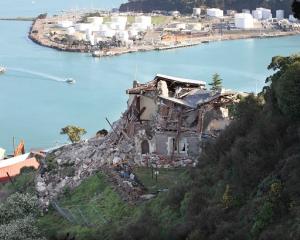
Reports on the unfolding events have been airing continuously since the quake on Tuesday and many parents and schools in Dunedin had reported children were showing signs of distraction in class and had not been sleeping well.
A staff member at a Dunedin primary school, who declined to be named, said the images on television screens might be to blame because they were disturbing and some children were "quite distraught" by what they had seen.
Mr Latta said he had heard of many reports around New Zealand of young children having sleep disturbances and nightmares.
Some were also experiencing physical symptoms such as sore tummies, as a result of the psychological trauma.
However, it was a normal reaction, and one of the best ways to deal with it was to consider how much media coverage the children should be exposed to.
"Parents need to shield their children from it. It's not helpful for them to see the endless newscasts. Parents should reassure children that they are safe. It's also important for parents to be calm when watching or talking about news of the quake because if the children see them going 'Oh my God', they will be frightened."
Mr Latta said children could also be calmed by telling them many people from around the world were in Christchurch helping the earthquake victims.
North East Valley Normal School principal John McKenzie said he had not noticed any signs of psychological trauma among his pupils.
Senior pupils were "quite engaged" in the story, and teachers had been giving carefully edited footage of the event.
"There are a few children who have friends and relatives in Christchurch, but they are talking about it, which seems to be helping.
"We don't want the children to be anxious about this, but we do want them to be empathetic. For this reason, we believe it's important to give them edited information about the event."






